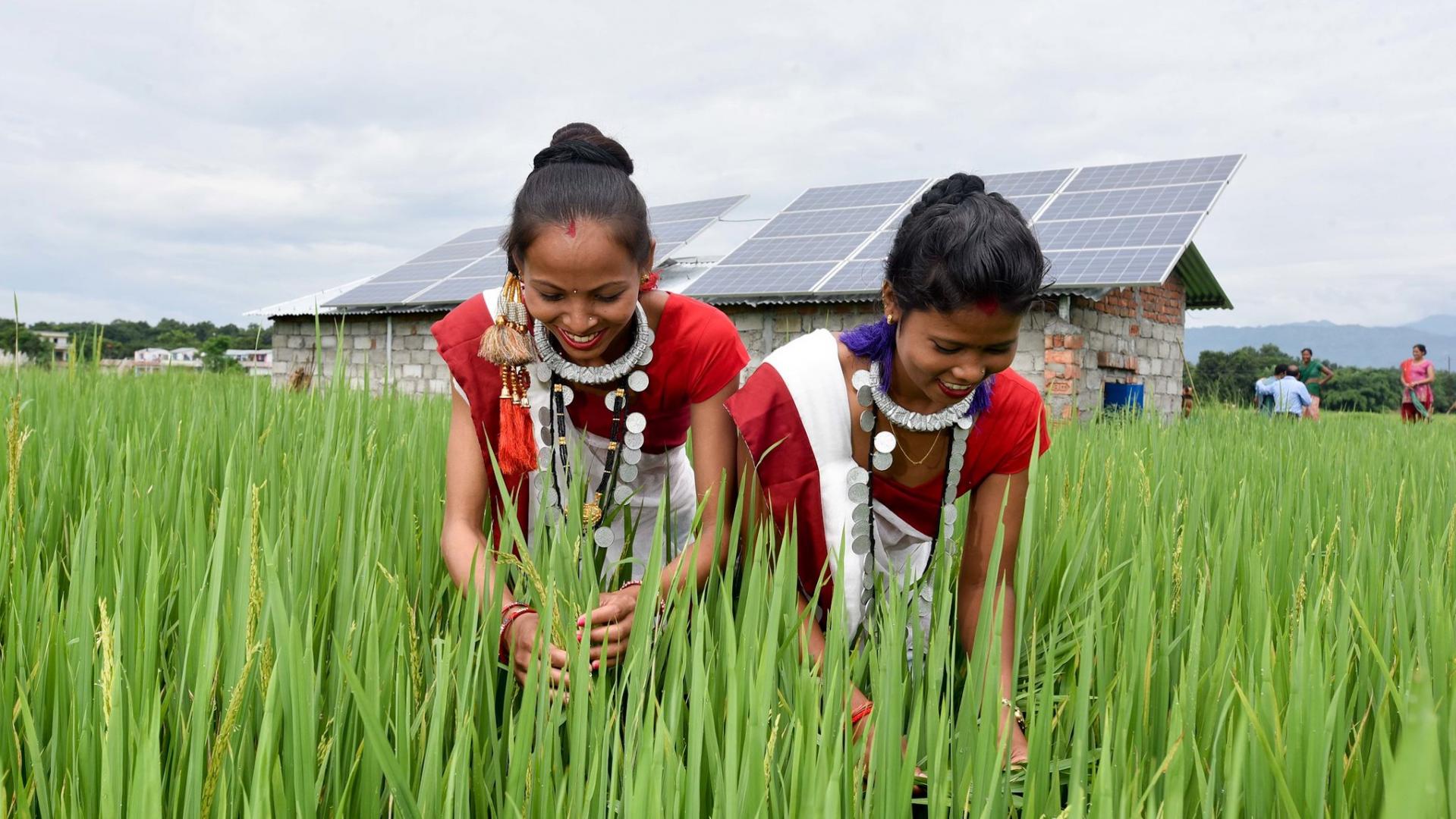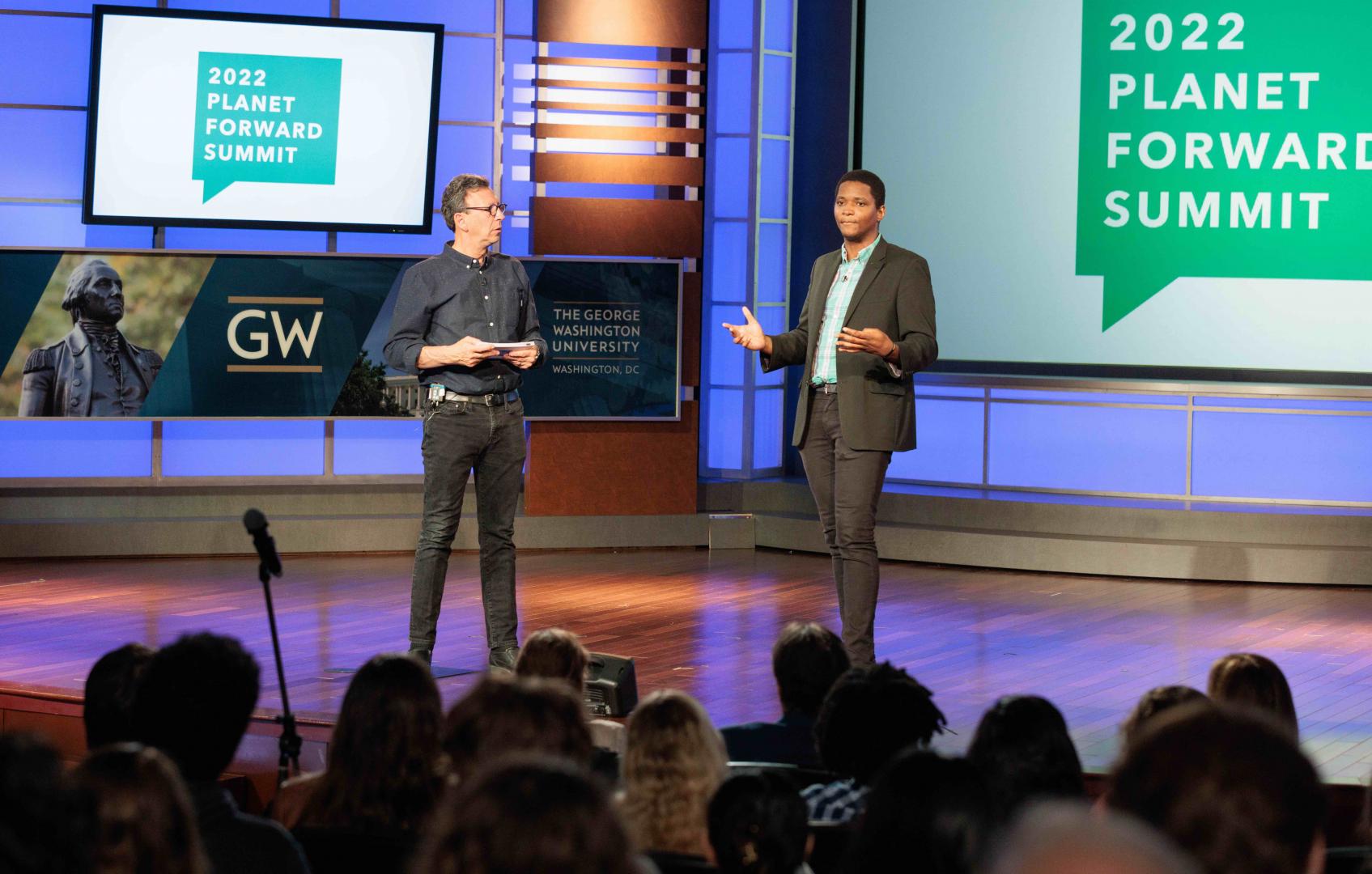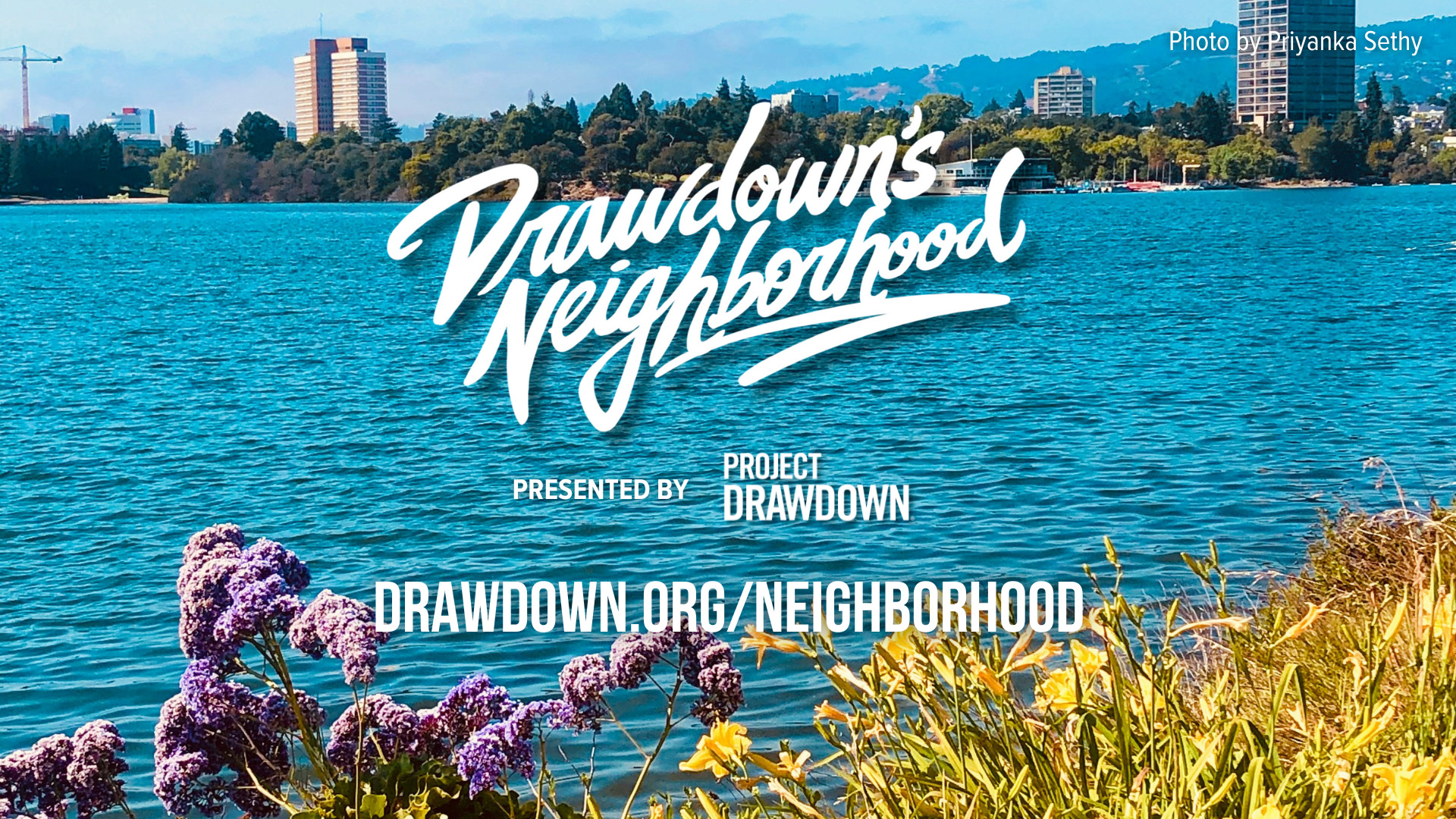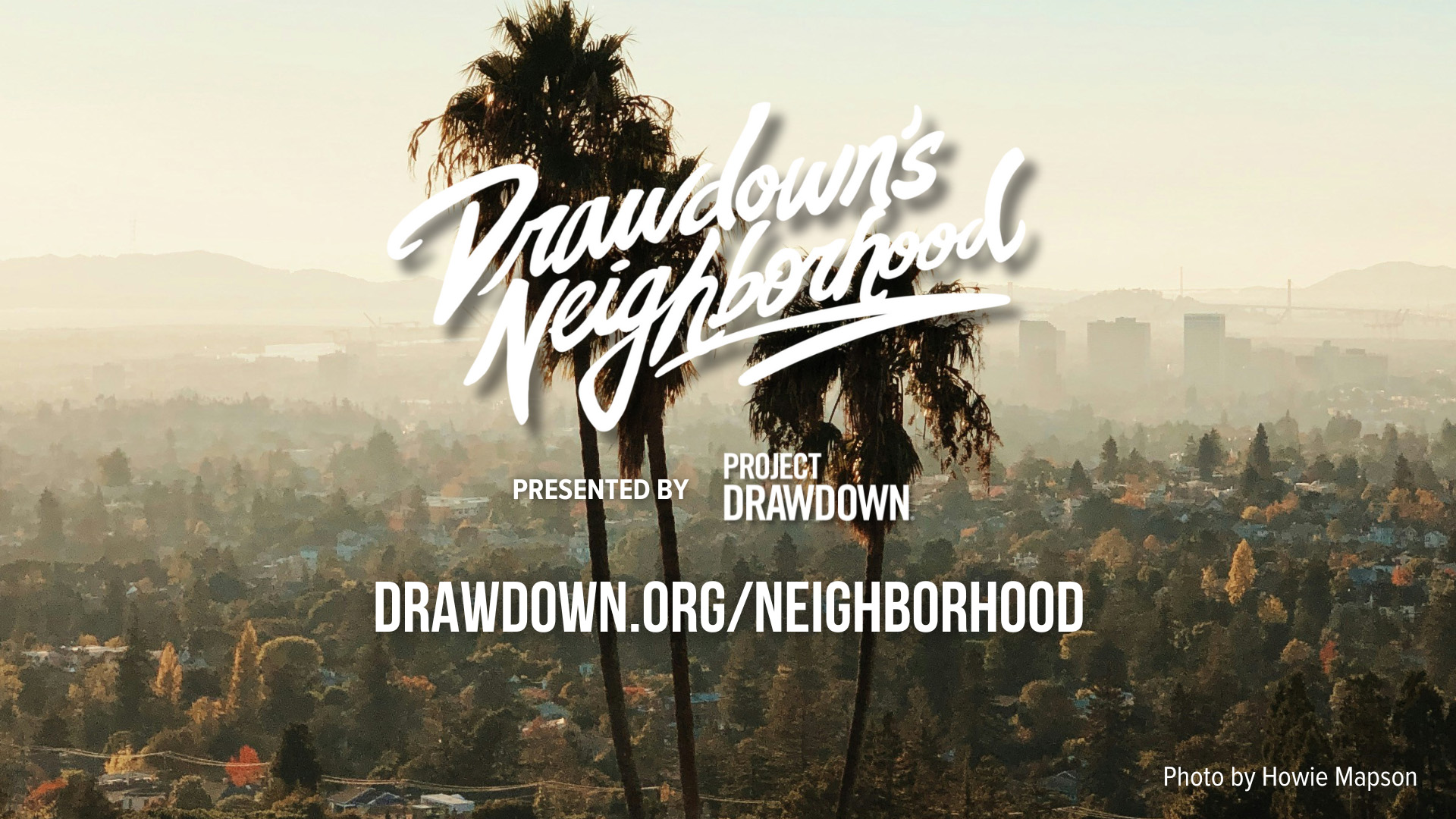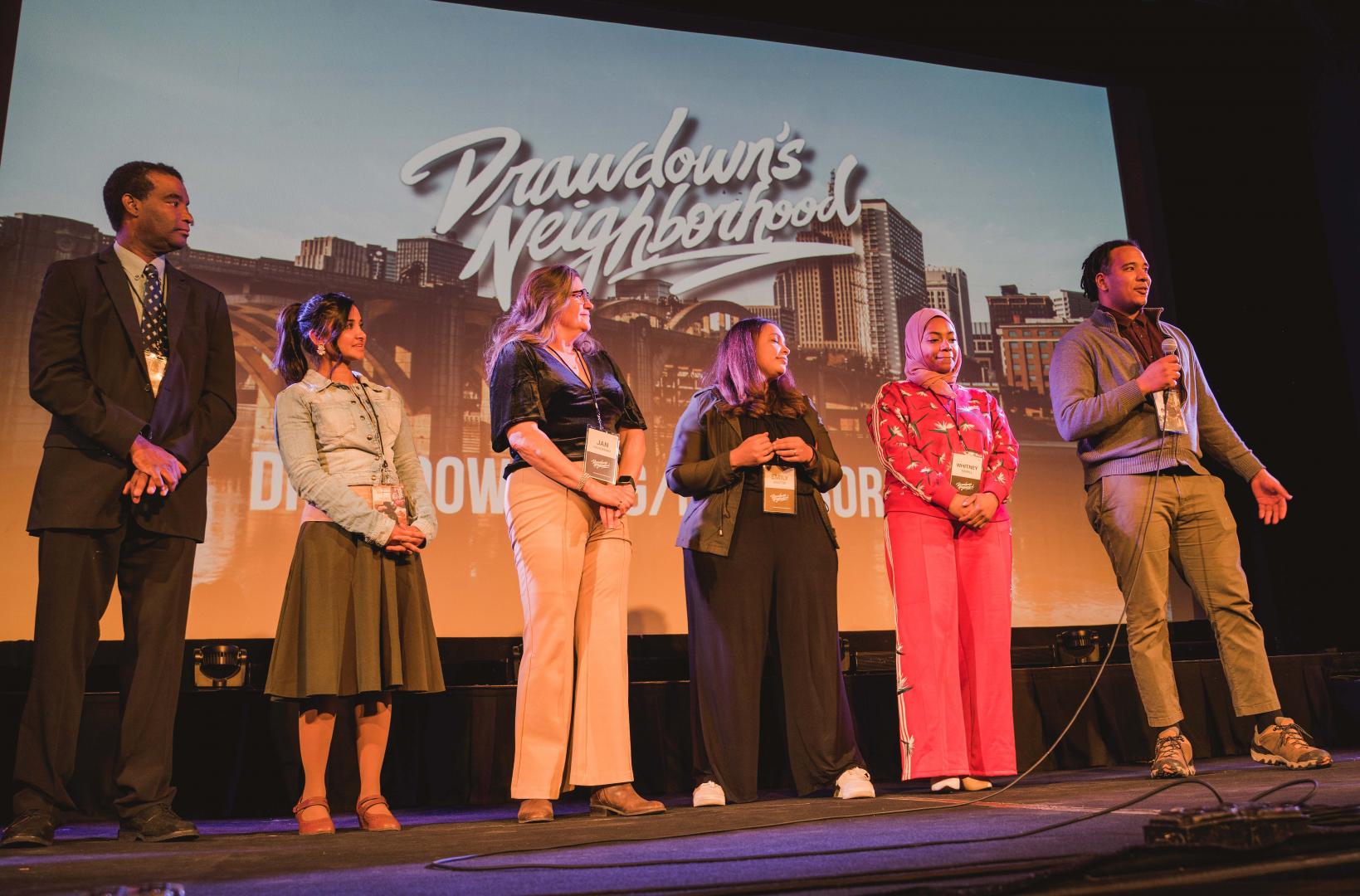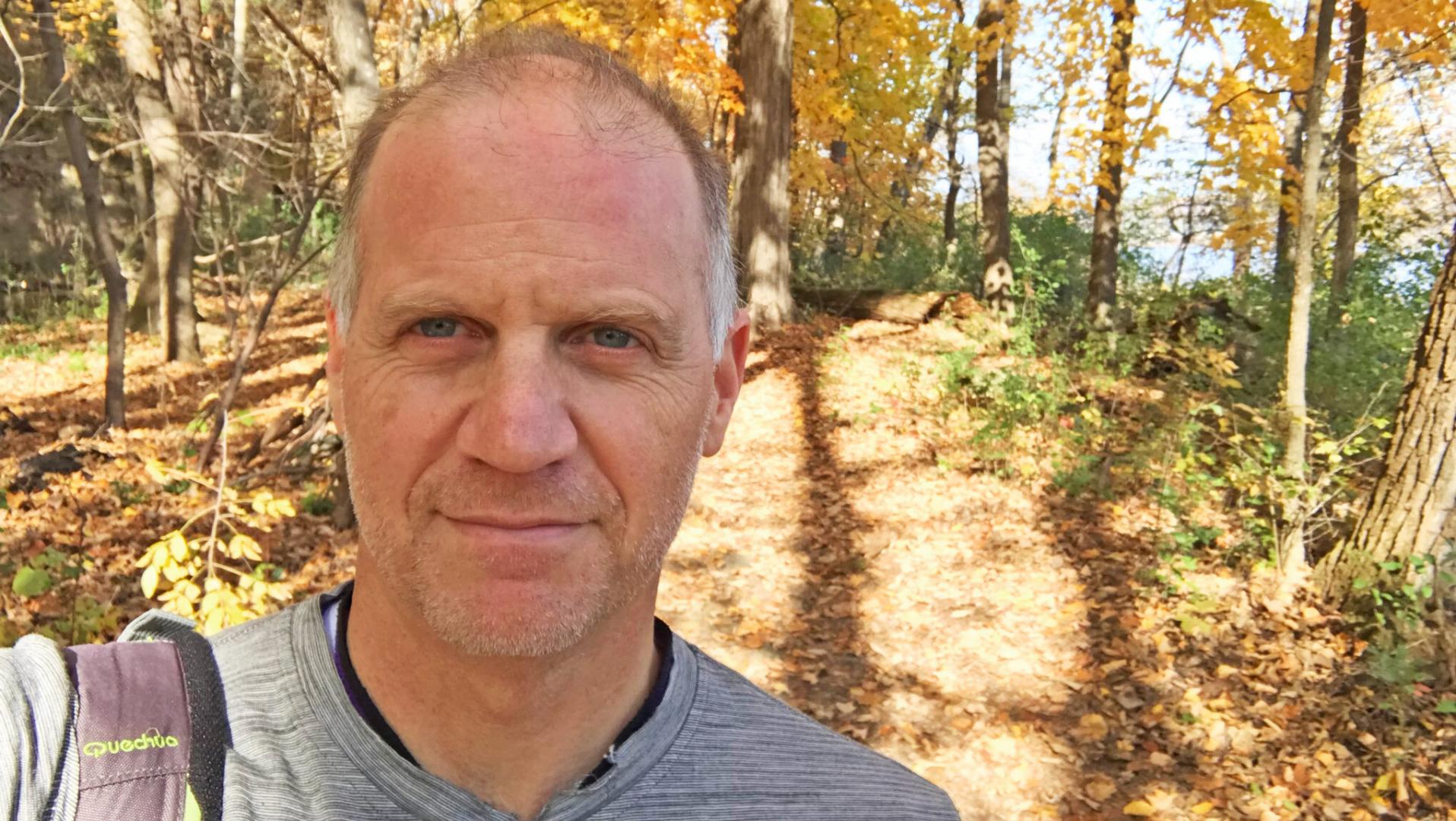In 2022, Drawdown Stories welcomed the world into a journey to “pass the mic” to the climate heroes who often go unheard and, in the process, invite people everywhere to tap into their unique “superpowers” to play a role in helping the world reach drawdown.
Early in the year, I took the stage at the 2022 Planet Forward Summit, sponsored by organizations including National Geographic, Discovery, Comcast, Adobe, and Patagonia, to underscore why accelerating new, inclusive climate conversations isn’t only nice, but necessary.
“I want to ask you to consider a question: As you navigate crisis, as you seek solutions, who and what are the voices that often aren’t represented in those conversations? Literally, look around you. Consider who is sitting next to you. If you’re on the livestream, consider who’s in the rooms with you or who you work with. What voices are represented, and who’s missing from those conversations?
“Unfortunately, studies have shown that those most vulnerable to the impacts of climate change and the climate crisis – Black communities, Indigenous communities, communities of color, low-income communities – are also often not represented in climate conversations or in rooms like this, and that’s a huge problem. In the spirit of navigating crisis and seeking solutions, we’re not taking that sitting down; we’re doing something about it and that’s what passing the mic is all about.”
Reaching drawdown as quickly, safely, and equitably as possible requires that all communities – particularly those least represented – have a seat at the table and have a part in solutions. Recognizing the task at hand, Drawdown Stories serves to spread awareness, shape attitudes, and spark action for the broader climate community, including educators and their students, as well as other future climate leaders, through storytelling and engagement.
This year, we made progress in a number of ways.
We centered the voices that often go unheard in the popular climate solutions dialogue.
In February 2022, at the start of Black History Month, Drawdown Stories hosted a virtual launch event for our program’s guiding principle of “Climate Solutions in Color” at the annual Great Northern Festival. We were joined by Clara Kitongo, program manager at the One Tree Per Child Program at Tree Pittsburgh; Ben Passer, senior program officer, Midwest climate and energy, at McKnight Foundation; Jacqui Patterson, founder and executive director of the Chisholm Legacy Project: A Resource Hub for Black Frontline Climate Justice Leadership and former senior director of the NAACP Environmental and Climate Justice Program; and Jothsna Harris, founder of Change Narrative.
Hosted live for hundreds in real time, the conversation underscored the need to welcome underrepresented voices in climate, not only to counteract historic and present disparities, but to welcome everyday “superpowers” of those who have often been left out of the conversation.
We introduced the world to drawdown-aligned climate careers and solutions in action.
Drawdown Labs highlights how every job can be a climate job and, through the work of Drawdown Stories in 2022, we showcased a diverse range of people in careers helping the world reach drawdown. The 20 change makers – in 20 unique roles showcasing the diversity of climate careers:
- Paige Anderson, project manager at the City of Pittsburgh, Department of Mobility and Infrastructure
- Blair Beasley, director of climate strategies at the Ray C. Anderson Foundation, working to support Drawdown Georgia
- Erica Cochran Hameen, PhD, architectural designer, professor, researcher, and director of diversity, equity, and inclusion at the Carnegie Mellon University School of Architecture
- Alexis Cromer, food operations director at 412 Food Rescue
- Tylesha Giddings, technical project manager at Southface
- Adam Hicks, field manager at Concrete Jungle
- Tonya Hicks, founder and CEO of Power Solutions, and Founder of Women Do Everything
- Kendrick Kelsey, Reuse Center associate at Lifecycle Building Center
- Clara Kitongo, program coordinator, One Tree Per Child, at Tree Pittsburgh
- Angie Martinez, senior right-of-way manager at the City of Pittsburgh, Department of Mobility and Infrastructure
- Demetrius Milling, worker-owner at Love is Love Cooperative Farm
- Veni Mittal, (former) energy audits associate at Rebuilding Together Pittsburgh / community service chair at the Green Building Alliance
- Tom Mulholland, senior project manager at Grounded Strategies
- Robin Okunowo, program coordinator at Captain Planet Foundation's Planeteer Alliance
- Sarah Olexsak, manager of transportation electrification at Duquesne Light Company
- Steve Place, horticulturist at the Kendeda Building for Innovative Sustainable Design
- Eri Saikawa, associate professor, Winship distinguished research professor of environmental sciences, and director of Emory Talks Climate at Emory University
- Shawn Taylor, crew leader at Landforce
- Richard Tumushime, head electrician at Energy Independent Solutions
- Brandon Walton, fleet manager with the City of Pittsburgh, Office of Management and Budget
We equipped communities with stories and resources to spread awareness, shape attitudes, and spark action.
While The Great Northern Festival was the official launch of Drawdown Stories’ work to “pass the mic,” it was later in the spring that we launched Drawdown’s Neighborhood, a climate solutions short documentary series featuring the stories of climate solutions heroes, city by city. The series began with stories from Pittsburgh, Pennsylvania, and, in the fall, added stories from Atlanta, Georgia – centering stories of BIPOC, women, youth, and immigrant climate leaders.
The Drawdown’s Neighborhood series is only beginning to achieve the impact it set out to have. To date, people from community organizations and other institutions in 30+ states have shared ways they plan to collectively engage more than 1 million people with Drawdown’s Neighborhood. Each series features learning and action resources, including offerings from ChangeX, Climate Generation, Ecochallenge.org, Solutions Journalism Network, and SubjectToClimate, as well as Project Drawdown resources like the Drawdown Labs Job Function Action Guides, Climate Solutions 101, and the Drawdown Solutions Library.
We collaborated with platforms and communities alike to begin to “pass the mic.”
This year, Drawdown Stories also contributed to a number of annual conferences and events hosted by Climate Generation, The Great Northern Festival, National Oceanic and Atmospheric Administration, the New England Aquarium, and Planet Forward. These collaborations resulted in tremendous reach, including downloads as part of National Geographic’s Overheard Podcast episode “The Greening of Pittsburgh” and more than 50,000 views hosting a show as part of Pinterest TV’s Climate Week show, “Real-World Climate Superheroes.”
We also shared Drawdown Stories content and resources directly – through talks and workshops – with communities of the Association for the Advancement of Sustainability Education (AASHE); California State Universities; Chabot College; Children’s Climate Championship; Club of Lisbon; the Design for Empathy Podcast; The George Washington University: Grand Valley State University: the HOPE, ACT, THRIVE podcast: Mass Audubon: the Mid-Atlantic Climate Change Education Conference: Pittsburgh Youth for Climate Action (hosted by Communitopia): SEI: Stanford University: The University of Maryland: and more.
Locally, with the generous support of 7 Stages Theatre and Drawdown Georgia, we also hosted the very first of many Drawdown’s Neighborhood community launch events. This launch, for Drawdown’s Neighborhood: Atlanta, welcomed 150 community members including public and private sector leaders, climate professionals, environmental justice advocates, educators, faith-based organizers, and everyday climate heroes from a wide range of locally and nationally recognized institutions.
We prepared to go even further in 2023.
In the second half of 2022, Drawdown Stories welcomed a new storytelling coordinator and engagement coordinator, bolstering the impact of our work community by community. In addition to preparing to feature and share more stories, we began to explore exciting partnerships and editorial collaborations that will bear fruit in 2023.
As we continue to build Drawdown Stories, we are excited for the impact of our work to blossom – providing people with a better understanding of the role climate solutions can play in their local communities and the science underlying those solutions; providing people with opportunities for deeper exploration and dialogue related to climate change and climate solutions; and providing people with relatable, relevant, inclusive stories and resources that enable them to help the world reach drawdown.

